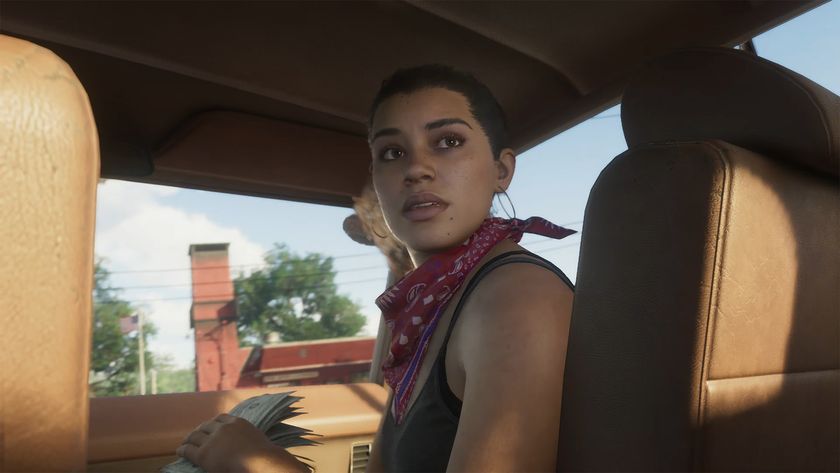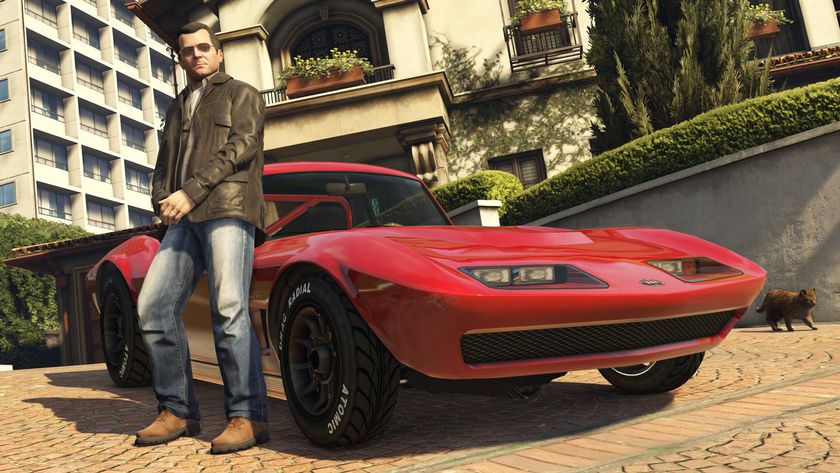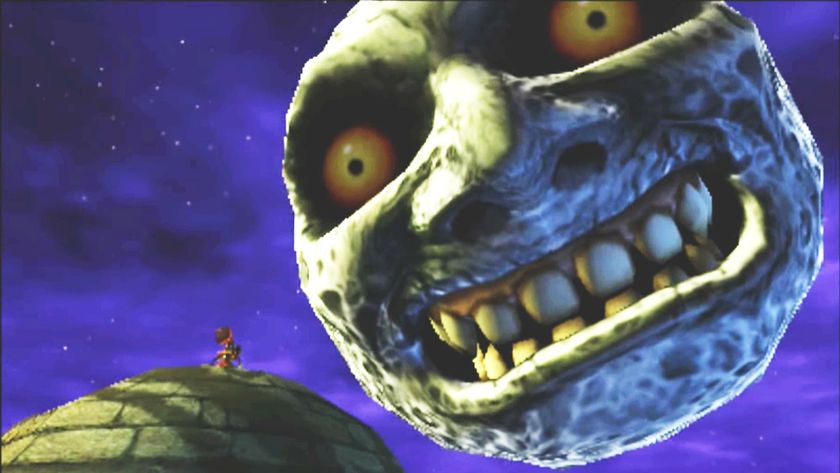Suicide Squad wants me to Kill the Justice League - but there's another group that deserves it far more
Opinion | I don't think I've felt less triumphant than when executing these heroes
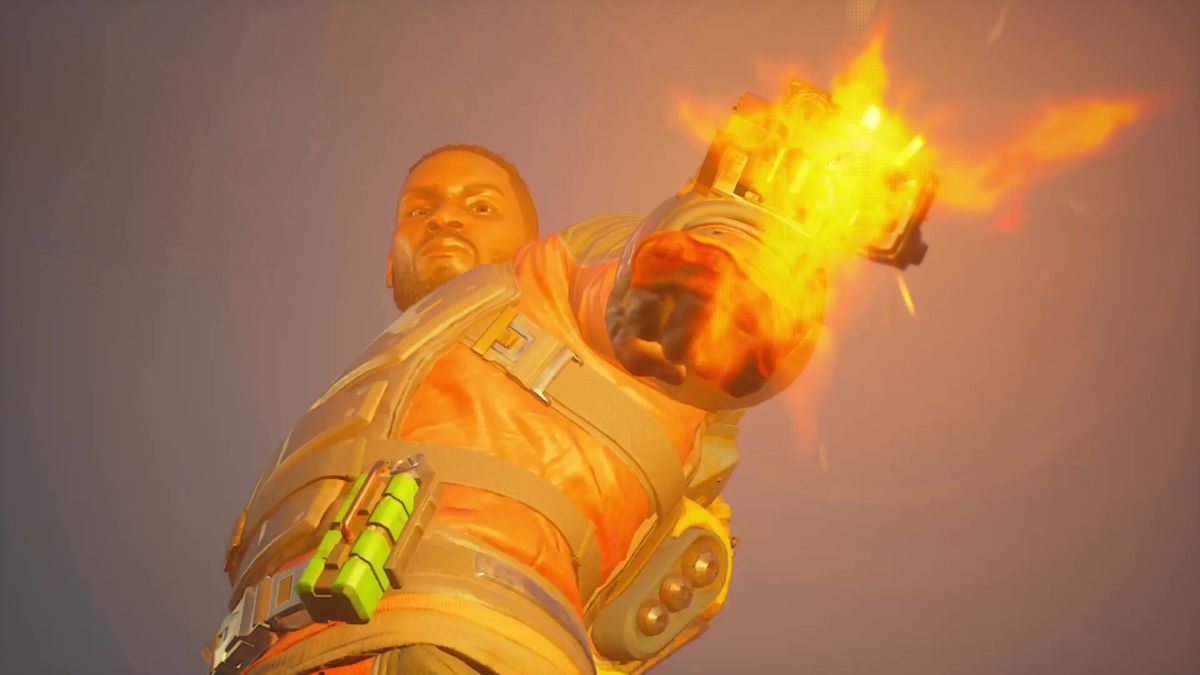
Suicide Squad: Kill the Justice League certainly lives up to its title. With one exception, it's up to you and your band of ragtag misfits to butcher the whole band of legendary heroes in a series of bullet-riddled boss fights… and to be honest, I can't stand it. To clarify, I don't think Suicide Squad is the catastrophe that many are claiming that it is, but I'll concede right now that I've never felt less heroic or triumphant than when I'm standing over one of these iconic, inspirational heroes and putting a bullet in their skull - and it is always concluded with a bullet to the skull. I should feel proud of my victory when it turns out that, yes, a fish, a second-best assassin and two unstable circus performers can indeed take out one of the most powerful entities in the universe. Such a shame that those powerful entities were unambiguously good people who just don't deserve the fate you're giving them.
And it didn't have to be this way! There was a setting and a situation that would have solved the whole problem: a setting that Warner Bros. already owns the rights to… but we get ahead of ourselves. Let's understand the problem before we start looking at solutions.
Spoiler warning: story details for Suicide Squad: Kill the Justice League ahead.
Never meat your heroes
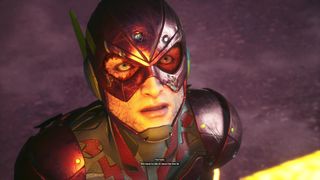
For those of you who haven't played Suicide Squad, I'll explain the situation. Set several years after Arkham Knight, the alien warlord Brainiac invades Metropolis with the hope of terraforming Earth; standard comic book fare. Rather than fight the Justice League though, Brainiac instead uses space science to take over their minds, making them devoutly loyal generals in his evil army. Without heroes to defend the Earth, the Suicide Squad are forced to step up and save the day: a perfectly solid set-up for a plot about reluctant underdogs.
Where things get trickier is the game's insistence that, yes, you have to kill the Justice League and live up to the eye-catching title. Even when I saw that, for a while part of me didn't believe that we'd actually be going full Garth Ennis on the JLA, that there'd be some workaround. Sure, maybe massacring the Superfriends is the initial mission, but perhaps later we might discover a way to free them instead, or maybe time travel and deus ex machina would undo the whole thing in the third act. Superheroes never stay dead, right?
At best, this is a game about how it's sometimes necessary to murder good people, and yet it doesn't seem to realise how fundamentally unpleasant this notion is.
No such luck: one-by-one you butcher the beleaguered Leaguers, and the general vibe of it is always as blunt as it is uncomfortable. Yes, the heroes might be acting like villains, but it's made very clear that this is forced behaviour: they're not in control, and characters repeatedly point that out. There's a brief moment where The Flash manages to fight off his programming, pleading to be put out of his misery, swearing that the only solution is to kill them all, and… I just hate this. Even if you don't feel any attachment to these legacy characters, the morality here is bleak and ugly. At best, this is a game about how it's sometimes necessary to murder good people, and yet it doesn't seem to realise how fundamentally unpleasant this notion is.
The killing yoke
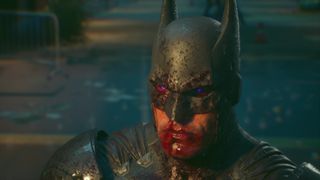
Suicide Squad tries to add emotional stakes by building on vendettas between Squad members and the League - Harley hates Batman, Deadshot hates Green Lantern, Captain Boomerang hates The Flash - but it's clear that these grudges are little more than petty spite for having their selfish schemes foiled, rather than legitimate grievances we can emotionally invest in. Deadshot being separated from his daughter sounds rough, but the guy is a professional murderer - you can't really blame Jon Stewart for stopping him. Likewise, Harley bitterly calls back to the Arkham games and references Bats saying she was "never very bright", but it doesn't feel particularly harsh to a character who spent several games slaughtering innocents in the giddy hope she might get to sleep with her psychiatric patient.
Sign up to the 12DOVE Newsletter
Weekly digests, tales from the communities you love, and more
Perhaps if Suicide Squad framed its killings as more of a grim necessity, maybe it would be more palatable, but emotionally it's all over the place. Boomerang pisses on the Flash's corpse after bloodily executing him, with a joke about the size of his penis as the chaser, but then we get a completely straight eulogy from Lois Lane about the tragedy of Flash's passing that feels like it's trying to pull tears from the audience. The mental whiplash that follows is something that no amount of speed force can account for - are we meant to feel depressed at the death of a selfless hero, or cackling at our triumph over an annoying do-gooder? When I work out the answer, I'll let you know. A friend even asked me recently if there was some sort of poignant reveal later on: did the League somehow summon Brainiac through hubristic overreach? Not to spoil, but… no, not even a little. If there's a lesson to be learned here, I don't think I want to know it.
Oh, the injustice!
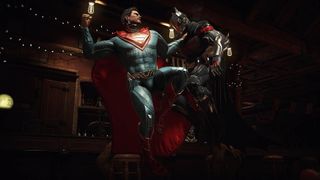
Perhaps the greatest tragedy is that it didn't have to be this way. Staying under the Warner Bros. umbrella, sibling studio Netherrealm had the perfect excuse for this kind of plot: the Injustice franchise, a series about the League going evil of their own volition, led by a vicious inversion of the Man of Steel. I'll admit I'm pretty damn bored of "evil Superman" stories at this point, but the concept will always feel appropriate for a punky, anti-establishment group like the Suicide Squad. It's even set-up nicely - depending on your choices, Injustice 2 ends either with the bad Supes getting thrown into the Phantom zone and vowing to return, or becoming even more powerful with an army of Brainiac soldiers.
That's a Superman I'd be happy to smear across Metropolis; a butcher tyrant with no redeeming qualities. If Suicide Squad had kicked off with the Injustice crew popping out of a whole in reality and carving their way through the Arkhamverse's Justice League, including a beloved Batman, I'd have been shoving people out of the way to grab my Iconic Electric Boomerang with Plus 3 Crit Chance on Hired Goons and… well, you get the point. But as things are here, "Kill the Justice League'' has ended up feeling less like an exciting promise, and more like a taxing obligation.
For more of our thoughts on the tales of Task Force X, check out our Suicide Squad Kill the Justice League review.

Joel Franey is a writer, journalist, podcaster and raconteur with a Masters from Sussex University, none of which has actually equipped him for anything in real life. As a result he chooses to spend most of his time playing video games, reading old books and ingesting chemically-risky levels of caffeine. He is a firm believer that the vast majority of games would be improved by adding a grappling hook, and if they already have one, they should probably add another just to be safe. You can find old work of his at USgamer, Gfinity, Eurogamer and more besides.
Most Popular





